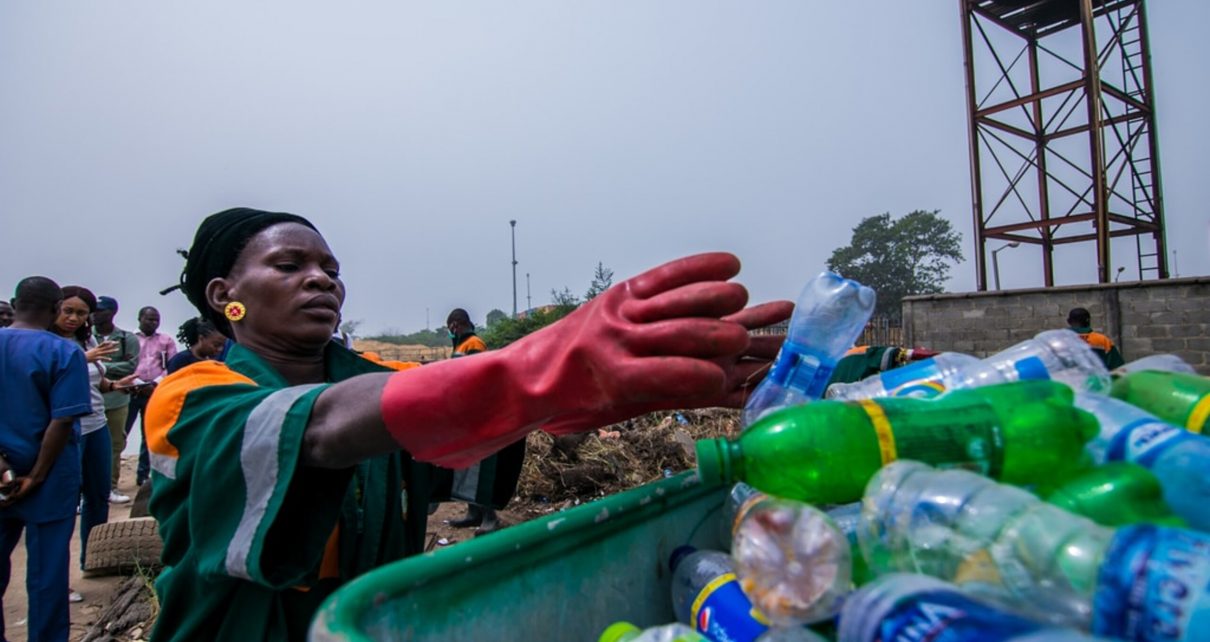To further promote and expand the value chain in the circular economy, the Lagos State Government has partnered with the United Nations Industrial Development Organization (UNIDO).
These remarks were made by Dr. Dolapo Fasawe, General Manager of the Lagos State Environmental Protection Agency (LASEPA), at a workshop on the circular economy held on Tuesday in Lagos.
This workshop’s focus was on encouraging circular economy practices that contribute to the development of sustainable plastic value chains.
In an interview, Fasawe explained that the collaboration was formed to promote a transition from a linear to a circular economic model.
She also mentioned that the UNIDO, the state of Lagos, and the federal government were all involved in organising the circular economy workshop.
According to Fasawe, the state government’s end of the collaboration is made up of agencies under the Ministry of Environment and Water Resources and the Organized Private Sector.
In order to promote the circular economy, she said, advocates must educate the public about the advantages of recycling plastic.
“The truth is Nigeria 2025 will be the largest producer of plastic waste.
“We need to step up our activities in recycling and circular economy.
“Once the plastic is used, it should not just be deposited anywhere.
“It can be reused, recycled, and reduced to something else. This is because plastic is not degradable.
“And when we say economics and plastic, it means that there’s a lot of money that can be made out of plastic waste,” she said.
According to Fasawe, the World Bank found a few years ago that Lagos State was losing nearly $7 billion yearly due to its lack of adoption of the circular economy.
“We are losing seven billion dollars annually, and the essence of this conference is to invite investors, and people to join us in this advocacy for recycling, reusing and creating industries, jobs, and more importantly a cleaner environment.
“You will not see these plastics on the road again if we put this approach of the circular economy on plastic waste,” Fasawe said.
Mr. Oluyomi Banjo, the UNIDO National Programme Coordinator, added that the organisation was excited to collaborate with Lagos State, one of the largest cities in both Nigeria and Africa.
Banjo argued that it was crucial for Lagos to achieve a circular economy first because it would serve as a model for the other states in Nigeria and for other parts of Africa.
According to him, if Lagos state wants to see this initiative through to fruition, it needs to create a plastics action plan based on the circular economy.
“We will bring everybody together to sensitise them on what circular economy is all about; the benefits to the environment, socially and economically.
“We will work with the private sector to be more productive and efficient to make more profit.
”We will also look at the informal sector to see how we can incorporate them in achieving this, knowing that we cannot achieve this without the informal sector,” Banjo said.
Mr. Ibrahim Odumboni, Managing Director/Chief Executive Officer of LAWMA, has commented on the efforts of the state government to encourage plastic recycling and reuse.
Odumboni stated that LAWMA was collaborating with Polysmart, a major player in the plastic recycling industry in Africa, to turn tonnes of plastic trash in the state into usable goods.
He explained that the government was encouraging people to “adopt a bin” in order to teach them the importance of sorting trash before it even gets to the curb.
He mentioned that several governmental agencies had taken action to discourage the usage of disposable plastics by banning them from their workplaces.
Mr. Tunji Bello, the state’s Commissioner of the Environment and Water Resources, had earlier thanked the UNIDO delegation for working with the state on the circular economy.
Bello, through Dr. Omobolaji Gaji, the Office of Environmental Services’ Permanent Secretary, has promised the initiative the full backing of the state government.


